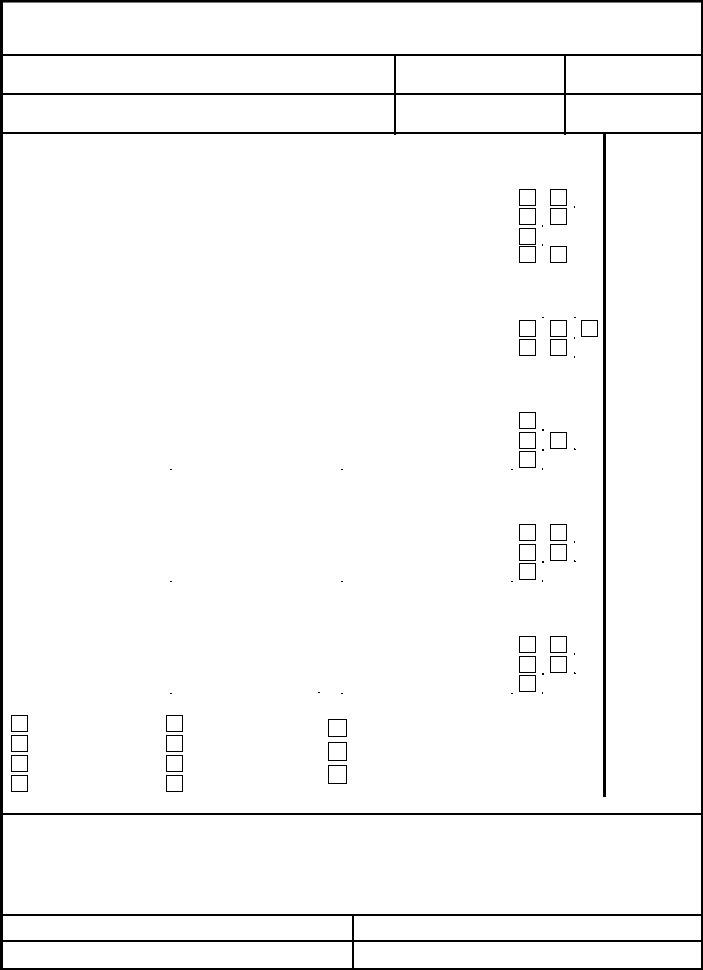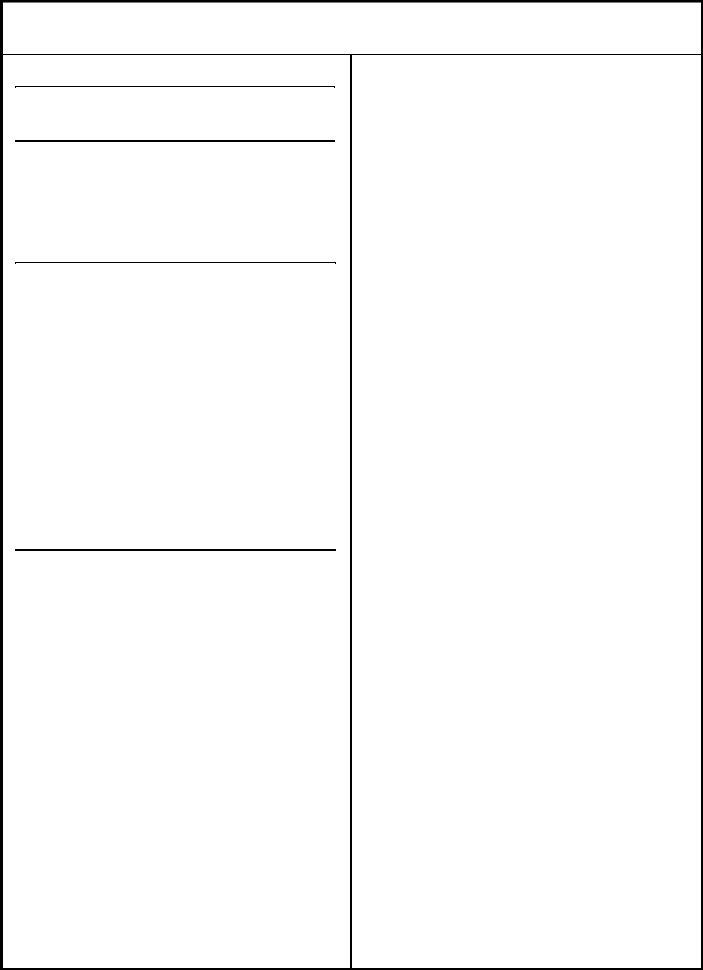In the comprehensive realm of military documentation, the DA Form 7682 R, commonly known as the Combat Field Fire Scorecard, serves a pivotal role in assessing the combat readiness and marksmanship proficiency of soldiers. This essential document, guided by the procedural protocols outlined in FM 3-22.9 and endorsed by the Training and Doctrine Command (TRADOC), is meticulously designed to record the performance of individuals in a simulated combat environment. Participants are evaluated across a series of firing positions—kneeling unsupported, barricade supported, and prone unsupported—under specific conditions that include range, hits, required hits, and exposure time. The form captures detailed scoring data, ranging from the type of aiming device used to the total number of hits achieved across various distances and positions, thereby determining the soldier's level of training. Ratings on the form categorize soldiers into three proficiency levels: Trained, Partially Trained, and Untrained, based on their performance. This methodical evaluation process, which includes wearing full combat gear and handling potential equipment malfunctions, not only highlights the soldier’s marksmanship skills but also their readiness for real-world combat scenarios, making the DA 7682 R a critical tool in the United States Army's training arsenal.
| Question | Answer |
|---|---|
| Form Name | Da Form 7682 R |
| Form Length | 2 pages |
| Fillable? | No |
| Fillable fields | 0 |
| Avg. time to fill out | 30 sec |
| Other names | da 7682 form download, dod da 7682 form, 7682 scorecard form, da 7682 sample |

COMBAT FIELD FIRE SCORECARD
For use of this form, see FM
NAME
RANK
UNIT
EVALUATOR'S NAME
RANK
DATE (YYYYMMDD)
|
TABLE 1 |
|
|
|
|
|
TOTAL NUMBER |
|
KNEELING UNSUPPORTED FIRING POSITION |
|
|
|
|
OF HITS |
|
|
|
|
|
|
|
|
|
RANGE (METERS) |
HITS REQUIRED |
EXPOSURE TIME (SECONDS) |
|
HITS |
|||
|
|
|
|
|
|
|
|
50 (Left) |
2 |
|
31 |
|
|
|
|
|
|
|
|
|
|
|
|
50 (Right) |
2 |
|
31 |
|
|
|
|
|
|
|
|
|
|
|
|
100 |
1 |
|
45 |
|
|
|
|
|
|
|
|
|
|
|
|
150 |
2 |
|
60 |
|
|
|
|
|
|
|
|
|
|
|
|
|
TABLE 2 - SET 1 |
|
|
|
|
|
||
|
BARRICADE SUPPORTED FIRING POSITION |
|
|
|
||||
|
|
|
|
|
|
|
|
|
RANGE (METERS) |
HITS REQUIRED |
|
EXPOSURE TIME (SECONDS) |
|
HITS |
|||
|
|
|
|
|
|
|
|
|
50 (Left or Right) |
3 |
|
|
26 |
|
|
|
|
|
|
|
|
|
|
|
|
|
100 |
2 |
|
|
40 |
|
|
|
|
|
|
|
|
|
|
|
|
|
|
TABLE 2 - SET 2 |
|
|
|
|
|
||
|
BARRICADE SUPPORTED FIRING POSITION |
|
|
|
||||
|
|
|
|
|
|
|
||
RANGE (METERS) |
HITS REQUIRED |
|
EXPOSURE TIME (SECONDS) |
|
HITS |
|||
|
|
|
|
|
|
|
|
|
100 |
1 |
|
|
19 |
|
|
|
|
|
|
|
|
|
|
|
|
|
150 |
2 |
|
|
21 |
|
|
|
|
|
|
|
|
|
|
|
|
|
200 |
1 |
|
|
40 |
|
|
|
|
|
|
|
|
|
|
|
|
|
|
TABLE 3 - SET 1 |
|
|
|
|
|
||
|
PRONE UNSUPPORTED FIRING POSITION |
|
|
|
||||
|
|
|
|
|
|
|
||
RANGE (METERS) |
HITS REQUIRED |
|
EXPOSURE TIME (SECONDS) |
|
HITS |
|||
|
|
|
|
|
|
|
|
|
100 |
2 |
|
|
23 |
|
|
|
|
|
|
|
|
|
|
|
|
|
200 |
2 |
|
|
36 |
|
|
|
|
|
|
|
|
|
|
|
|
|
250 |
1 |
|
|
50 |
|
|
|
|
|
|
|
|
|
|
|
|
|
|
TABLE 3 - SET 2 |
|
|
|
|
|
||
|
PRONE UNSUPPORTED FIRING POSITION |
|
|
|
||||
|
|
|
|
|
|
|||
RANGE (METERS) |
HITS REQUIRED |
|
EXPOSURE TIME (SECONDS) |
|
HITS |
|||
|
|
|
|
|
|
|
|
|
150 |
2 |
|
|
21 |
|
|
|
|
|
|
|
|
|
|
|
|
|
250 |
2 |
|
|
37 |
|
|
|
|
|
|
|
|
|
|
|
|
|
300 |
1 |
|
|
50 |
|
|
|
|
|
|
|
|
|
|
|
|
|
AIMING DEVICE USED (Check One) |
|
RATINGS |
|
|
TOTAL NUMBER |
|||
|
|
|
|
|
|
|
|
|
IRON SIGHT |
|
|
Trained - 24 to 26 hits |
|
|
OF HITS FOR |
||
|
|
|
ALL TABLES |
|||||
|
|
|
|
|
|
|||
|
|
|
|
|
|
|
|
|
BACKUP IRON SIGHT |
|
Partially Trained - 16 to 23 |
|
|
|
|||
|
|
|
|
|
||||
|
|
|
|
|
|
|
||
M68, CCO |
|
|
|
|
|
|
||
ACOG |
|
|
Untrained - 15 or fewer hits |
|
|
|
||
|
|
|
|
|
|
|||
|
|
|
|
|
|
|
|
|
REMARKS
EVALUATOR'S INITIALS
DATE INITIALED
OFFICER'S INITIALS
DATE INITIALED
DA FORM
APD PE v1.03ES

CONDUCT OF A COMBAT FIELD FIRE RANGE
CONDUCT
NOTE: When firing combat field fire, each Soldier must wear the
proper uniform: the helmet, LBE, and IBA with all SAPI plates (if available). No other armor is required.
Each firer receives 30 rounds of
NOTES: 1. Targets will bob between hits.
2.Ten to twenty seconds should elapse between firing tables to allow Soldiers to transition to the next firing position or to prompt Soldiers to watch the area for additional targets.
3.A Soldier should not stop firing unless he has completed the firing table and is transitioning to the next position (making a brief halt in fire necessary), has completed all firing tables, or is out of ammunition.
4.The dummy round placed in each magazine (1 round for each magazine) simulates a malfunction. To properly simulate a malfunction, the dummy round must be randomly placed; it cannot be the first or last round in the magazine. Soldiers should address this malfunction (by performing SPORTS) without prompting.
Table 1 - Kneeling Unsupported Firing Position.
Soldiers begin combat field fire in a kneeling unsupported position next to a barricade. On a signal, four targets expose simultaneously. Soldiers fire at each target until it falls and stays down. After 60 seconds have elapsed, the last target will fall and stay down.
Without prompting, Soldiers transition to the barricade supported position.
Table 2 - Barricade Supported Firing Position.
To assume a barricade supported position, Soldiers stand behind the lower portion of the barricade. When in this position, Soldiers are exposed to two sets of targets:
•In the first set, two targets expose simultaneously. After 40 seconds have elapsed, the last target will fall and stay down.
•In the second set, three targets will expose simultaneously. After 40 seconds have elapsed, the last target will fall and stay down.
Soldiers engage at each target until it falls and stays down. Without prompting, Soldiers transition to the prone unsupported position.
Table 3 - Prone Unsupported Firing Position.
To assume a prone unsupported position, the Soldier positions himself so that he fires around the edge of the barricade, using it for cover. When in this position, Soldiers engage two sets of targets:
•In the first set, three targets expose simultaneously. After 50 seconds have elapsed, the last target will fall and stay down.
•In the second set, three targets will expose simultaneously. After 50 seconds have elapsed, the last target will fall and stay down.
Soldiers fire at each target until it falls and stays down. Upon completion of the firing table, Soldiers should stay in position, clear their weapons, and follow the orders given by the tower operator.
SCORING
Accurate performance data are critical. Based on the data recorded, an AAR can be performed by range and firing position to discuss firing performance.
RATINGS
Trained - 24 to 26 hits. The Soldier is trained and has demonstrated proficiency in accomplishing the task to wartime standards.
Partially Trained - 16 to 23 hits. The Soldier needs to practice the task. Performance has demonstrated that the Soldier does not achieve standard without some difficulty or has failed to perform some task steps to standard.
Untrained - 15 or fewer hits. The Soldier does not demonstrate an ability to achieve wartime proficiency.
REVERSE, DA FORM |
APD PE v1.03ES |